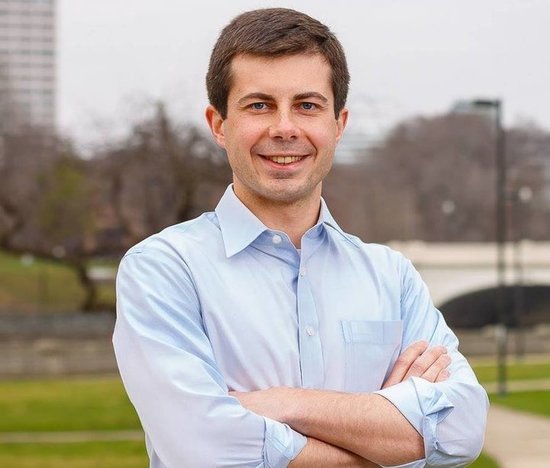
Friday
If any of the Democratic presidential candidates want space on this blog before the first debate in June (I hear them clamoring now), they must mention literature. I wrote about Sherrod Brown when I discovered his love for Tolstoy (although he ultimately chose not to run), and now Indiana mayor Pete Buttigieg gets a mention for comparing a presidential campaign to Ulysses (!).
While others noticed Buttigieg’s smart and wide-ranging discussion about policy in a recent Esquire article, I focused immediately on Ryan Lizza’s question, “You’re a big James Joyce buff. Is running for president more like Ulysses or Finnegan’s Wake?
I can’t imagine why Lizza brought up the impossible-to-read Finnegans Wake unless to suggest that campaigns are so crazy and confused and candidates’ language is so slippery that people can’t make heads or tails of any of it. In any event, Buttigieg opted for Ulysses and his response was unexpected and smart:
Definitely more like Ulysses than it is like Portrait. Finnegans Wake is dream speak. Ulysses is consciousness meeting reality. But here’s why I think Ulysses is extremely relevant. People believe Ulysses is this complex, difficult, inscrutable text full of references. And it is a difficult text, but its subject matter couldn’t be more democratic. It’s about a guy going about his day for one day. That’s the plot of Ulysses. And, to me, that’s what makes it very touching. You’re in this guy’s head, and you’re kind of seeing life through his eyes, and at the end through his wife’s eyes.
That’s how politics ought to be, too. The reason any of this stuff matters is that it affects us in the everyday. And I think the greatest literature, whether it’s Ulysses or [Egyptian author Naguib] Mahfouz, when it touches politics, it’s about how politics can make our everyday better or worse. And I think that same understanding of the imperative and the primacy of lived experience ought to be how our politics works.
While I’ve never warmed up to Ulysses (I was assigned it twice in college), I appreciate Buttigieg’s point. Joyce’s novel is about the intelligent but conflicted Steven Daedalus finding an unlikely father figure in middle-aged Jewish ad salesman Leopold Bloom. Their friendship, while commonplace, somehow manages to be epic as well. That Buttleig recognizes potential heroes within everyday voters may be why he is finding admirers.
Given that CNN just declared Buttigieg to be “the hottest” candidate in the race, might we expect a Molly Bloom response from citizens? Will they ask him with their eyes to ask them for their vote?
I asked him with my eyes to ask again yes and then he asked me would I yes to say yes my mountain flower and first I put my arms around him yes and drew him down to me so he could feel my breasts all perfume yes and his heart was going like mad and yes I said yes I will Yes.
After all, voters do fall in love with their candidates.
Incidentally, the best twitter response to Buttigieg’s love of Joyce has got to be this one from David Dayen, who riffs off the novel’s opening line:
Stately plump Pete Buttigieg came from the town hall, bearing a bowl of lather on which a mirror and a razor lay crossed.
Explanatory note: Today’s title alludes to Ulysses on the Liffey, Richard Ellmann’s famous scholarly exploration of Joyce’s novel. The Liffey is the river that runs through Dublin and that plays an important role in the work.